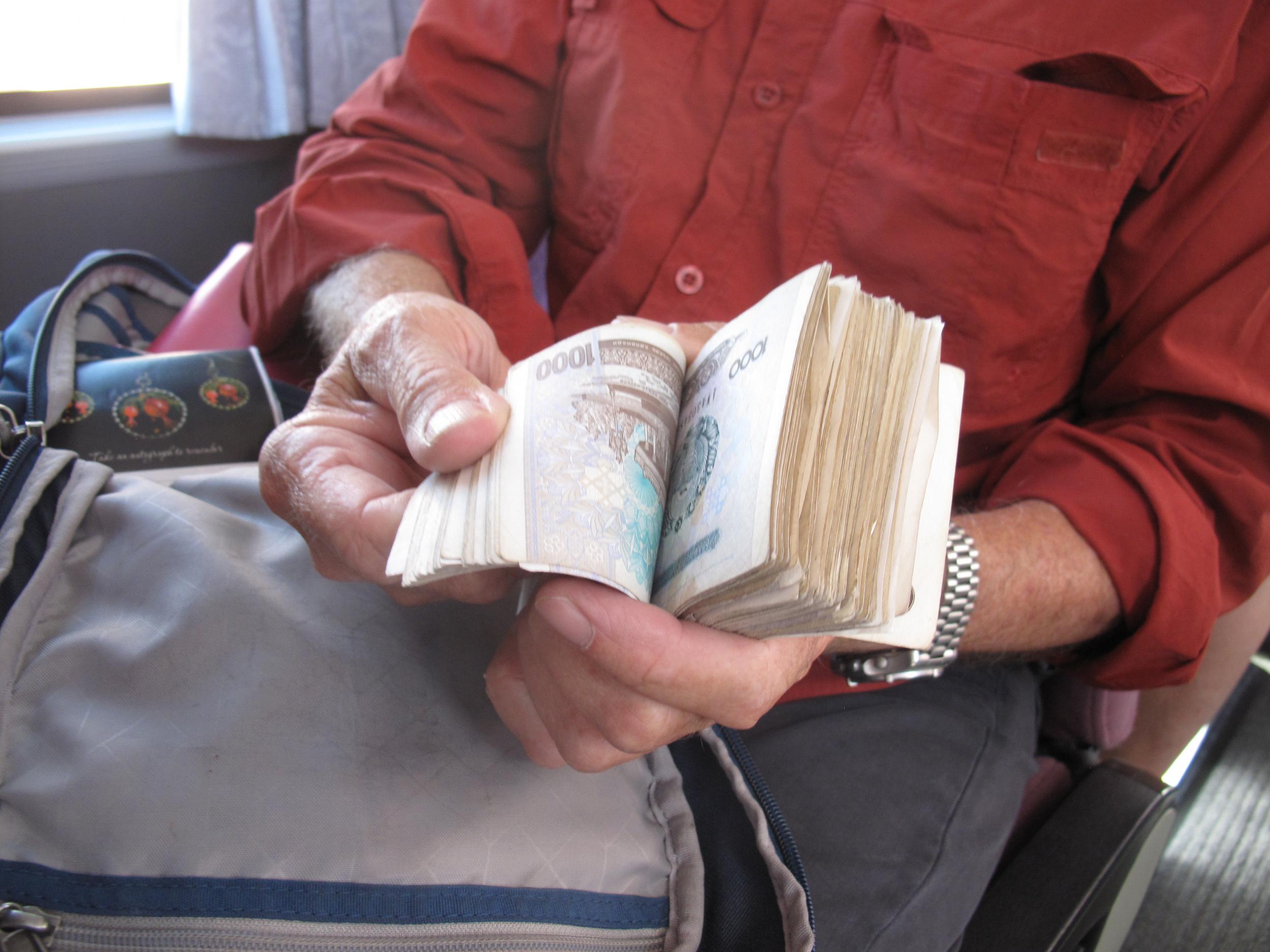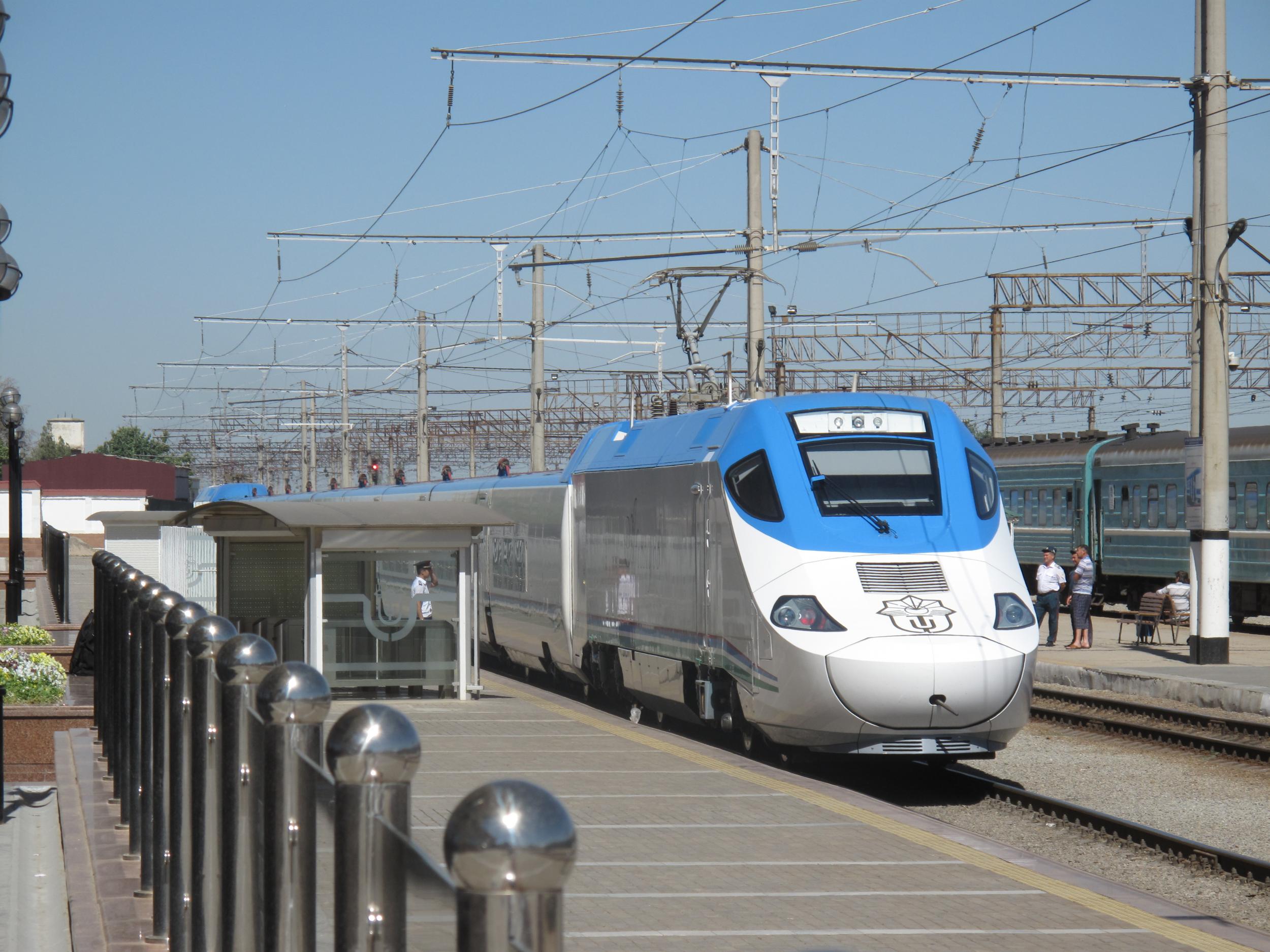Uzbekistan: Where your travel money will take you far
You need not be a billionaire to catch the Silk Road Express

Your support helps us to tell the story
From reproductive rights to climate change to Big Tech, The Independent is on the ground when the story is developing. Whether it's investigating the financials of Elon Musk's pro-Trump PAC or producing our latest documentary, 'The A Word', which shines a light on the American women fighting for reproductive rights, we know how important it is to parse out the facts from the messaging.
At such a critical moment in US history, we need reporters on the ground. Your donation allows us to keep sending journalists to speak to both sides of the story.
The Independent is trusted by Americans across the entire political spectrum. And unlike many other quality news outlets, we choose not to lock Americans out of our reporting and analysis with paywalls. We believe quality journalism should be available to everyone, paid for by those who can afford it.
Your support makes all the difference.“I thought you were Bill Gates,” the steward said while wheeling the buffet trolley along the aisle of Wednesday’s 7.30am from Tashkent to Samarkand.
The Afrosiyob high-speed train was racing across Uzbekistan’s Steppe at over 140mph, reducing the parched, crumpled foreground to a blur. To the south, a wall of snow and rock shone through the morning heat haze, a final Himalayan flourish before the dust of the desert. Think of the two-hour trip from the Uzbek capital to the minarets and mausoleums of Samarkand as the Silk Road Express.
The steward was busy dispensing tea and pastries to Economy Class passengers. So I didn’t get a chance to say that the co-founder of Microsoft might have upgraded to Business Class on the fastest train in Central Asia.

Yet Uzbekistan is a handy place to get a glimpse of life for the mega-rich.
The currency is the som. You want to be a local millionaire? Just change £100. But be careful how you do it, and plan ahead: before you touch down, convert your pounds to US$125. In these changing times, sterling is too volatile for the currency traders of Uzbekistan.
The preferred denomination is a hundred-dollar bill, though lower-value notes are tolerated. I started with $125, which had cost me £100.
Banks and hotel exchange desks will give you less than half a million som for this sum. To get the real million-som deal, you need to find a local monetary magician – or black-market spiv. In the bad old days when Uzbekistan was part of the Soviet Union, unsavoury characters would find you, approaching tourists with dubious offers of pound-for-rouble swaps at many times the official rate, with the option of taking some of the transaction in Soviet “champagne” rather than cash.
Life for the 21st-century wanderer along the Silk Road in Central Asia is more straightforward. The authorities turn a blind eye to illicit foreign exchange, which mostly happens on the fringes of produce markets.
In Soviet times, a tourist who dared ask an Uzbek policeman for directions to the black market would be arrested; these days, he will gladly advise. I asked an officer in Tashkent, and he offered to find a cab to take my travelling companion and me to the right location. But then a local pharmacist raised the stakes and insisted on driving us there personally.
Our new friend led us to a scruffy backstreet populated by dealers, and asked for our dollars. He wound down the window and handed over the hard cash. In return we were handed a wad the size of a house brick — completing the sense that we had somehow strayed into a scene from the cult narcotics series, Breaking Bad.
Normally the tourist should count the cash to make sure the dealer hasn't tried the old swindle of inserting worthless notes into the wad. But with the standard unit, 1,000 som, worth just 10p, that isn’t feasible. Like Bill Gates’ riches, the cash could more easily be weighed rather than counted.
I am currently halfway through the million, which is stretching unbelievably far. A taxi from one side of the capital to the other? Less than £1. Dinner of kebabs, salad, with a beer and glass of wine at a local restaurant? A fiver at most. And a ticket for the best train in Central Asia? Under £6 for 200-plus mlles, including complimentary tea and pastries.
Uzbekistan has a competitive advantage over many other nations. The heart of the Silk Road delivers formidable value as well as fabulous experiences. But it is absurd that tourists should have to indulge in a Tashkent tango with shadowy characters to get a realistic exchange rate.
Like every previous attempt to prop up a national currency, the Uzbek government’s policy will fail. On this ancient axis of international exchange, the free market will prevail. Just ask Bill Gates.
Join our commenting forum
Join thought-provoking conversations, follow other Independent readers and see their replies
Comments